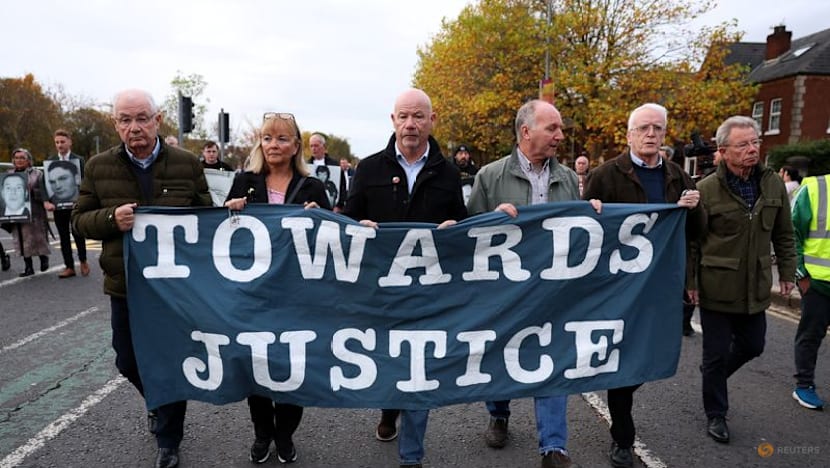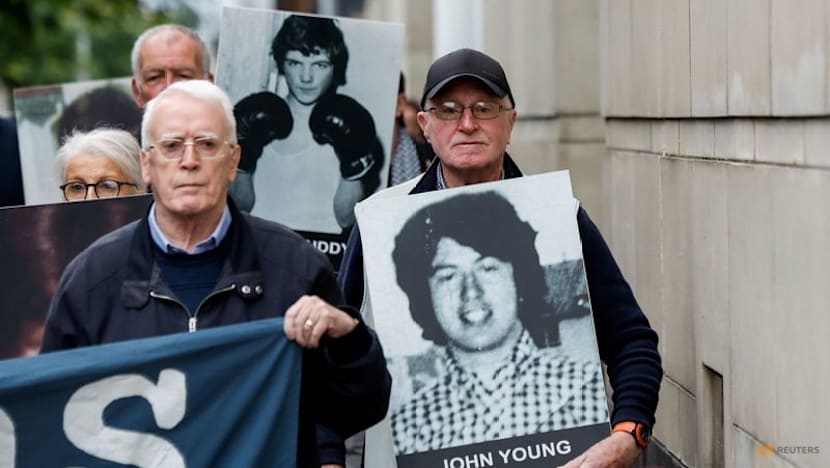Ex-British soldier cleared of Bloody Sunday murders

BELFAST: A Belfast judge on Thursday (Oct 23) acquitted a former British paratrooper accused of killing unarmed civilians during the 1972 Bloody Sunday massacre. The verdict has drawn anger from victims’ families and Northern Ireland’s political leaders.
The case remains deeply divisive in Northern Ireland, where three decades of sectarian violence known as The Troubles continue to shape public life despite the 1998 peace accord that ended most of the conflict.
On Jan 30, 1972, British troops opened fire on civil rights protesters in the Catholic-majority Bogside area of Londonderry, known to Irish nationalists as Derry. Thirteen people were killed, and a fourteenth later died of his wounds.
Judge Patrick Lynch said he was satisfied there had been an intention to kill but that prosecutors had failed to prove who fired the fatal shots.
“I find the accused not guilty on all seven counts,” Lynch said, acquitting the former soldier, identified only as Soldier F, of two charges of murder and five of attempted murder.
The defendant listened to the verdict from behind a curtain, hidden from view in a packed courtroom.
FAMILIES CONDEMN VERDICT
Soldier F had been charged with murdering James Wray and William McKinney and attempting to kill five others during the protest.
Relatives of the victims expressed outrage after the ruling.
“Soldier F created two young widows on Bloody Sunday, he orphaned 12 children and he deprived dozens of siblings of a loving brother,” said Mickey McKinney, whose brother was among the dead.
“The blame lies firmly with the British state, with the RUC who failed to investigate the murders properly, or indeed at all,” he added.
Northern Ireland’s First Minister Michelle O’Neill, who is vice president of Sinn Féin, called the verdict deeply disappointing and said it continued the “denial of justice” for the families.

POLITICAL REACTION SPLIT
Democratic Unionist Party leader Gavin Robinson said it was time to move on from the events of 1972. He praised most soldiers who served “with honour and at great personal cost” and warned against “rewriting of the past.”
The UK government said it remained committed to finding a way forward that acknowledges the past while supporting those who served their country during a difficult period in Northern Ireland’s history.
BLOODY SUNDAY LEGACY
The 1972 killings boosted support for the Provisional Irish Republican Army, which fought British rule in Northern Ireland during a conflict that claimed about 3,500 lives.
A 1972 inquiry cleared the soldiers, but it was condemned as a whitewash by the Catholic community. A new investigation, the Saville Inquiry, began after the 1998 Good Friday Agreement. The 12-year probe concluded in 2010 that the killings were unjustified.
Then prime minister David Cameron issued a formal apology, saying British soldiers had lost control and that none of the victims posed a threat.
TRIAL AND FUTURE CASES
Prosecutors first recommended in 2019 that Soldier F stand trial. The case faced repeated delays, and few expect more prosecutions of former soldiers.
Last month, the UK government said it would introduce new legislation to address the legacy of The Troubles and allow halted inquests to resume.















